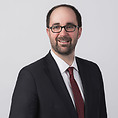Wiley Amicus Brief Helps Persuade First Circuit that Boston City Council’s Prayer Custom Is Constitutional
Washington, DC – Wiley Rein LLP, representing a religious liberties organization as amicus curiae, helped persuade a federal appeals court that the Boston City Council’s custom of inviting guest chaplains to give an opening prayer at its meetings is constitutional.
In an August 6 decision, the U.S. Court of Appeals for the First Circuit affirmed a lower court’s ruling that “the Constitution does not require that legislative bodies accept all speakers who request to give invocations.” The First Circuit agreed with arguments advanced by Wiley in a March 25 amicus brief, filed in support of the City of Boston on behalf of the nonprofit First Liberty Institute.
The case stems from a lawsuit filed by The Satanic Temple, Inc. (TST), alleging that the Boston City Council engaged in religious discrimination by declining to invite the group to deliver an invocation. Wiley had argued in the amicus brief that the Boston City Council is “well within its rights,” under the Establishment Clause of the Constitution, not to invite TST.
“Under the history-and-tradition test that has always governed legislative prayer cases like this one,” the Boston City Council’s legislative-prayer custom is constitutional, according to the brief filed by Joel S. Nolette, associate in Wiley’s Litigation Practice. The Wiley team also included partner Stephen J. Obermeier, of counsel Krystal B. Swendsboe, and associate Kahlil H. Epps.
The case is The Satanic Temple, Inc. v. City of Boston, No. 23-1642, U.S. Court of Appeals for the First Circuit.
Related Professionals
Practice Areas
Contact
Sarah Richmond
Director of Communications
202.719.4423
srichmond@wiley.law




